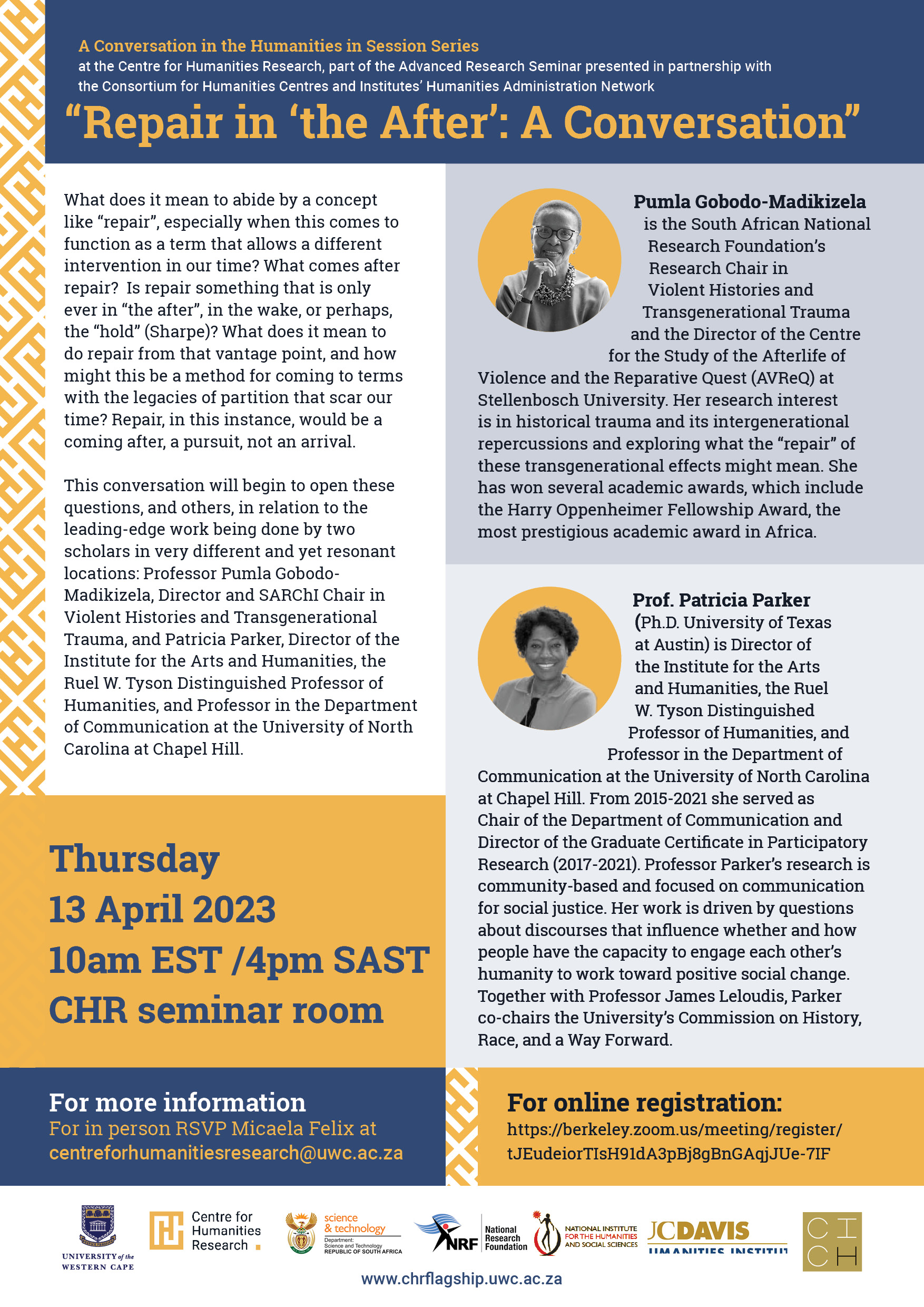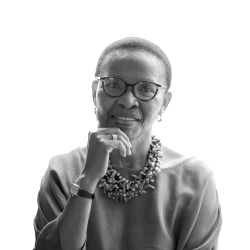Abstract
What does it mean to abide by a concept like “repair”, especially when this comes to function as a term that allows a different intervention in our time? What comes after repair? Is repair something that is only ever in “the after”, in the wake, or perhaps, the “hold” (Sharpe)? What does it mean to do repair from that vantage point, and how might this be a method for coming to terms with the legacies of partition that scar our time? Repair, in this instance, would be a coming after, a pursuit, not an arrival. This conversation will begin to open these questions, and others, in relation to the leading-edge work being done by two scholars in very different and yet resonant locations: Professor Pumla Gobodo-Madikizela, Director and SARChI Chair in Violent Histories and Transgenerational Trauma, and Patricia Parker, Director of the Institute for the Arts and Humanities, the Ruel W. Tyson Distinguished Professor of Humanities, and Professor in the Department of Communication at the University of North Carolina at Chapel Hill.
This event is being cosponsored by the CHR, UWC, and the Consortium of Humanities Centers and Institute’s Humanities Administration Network.




